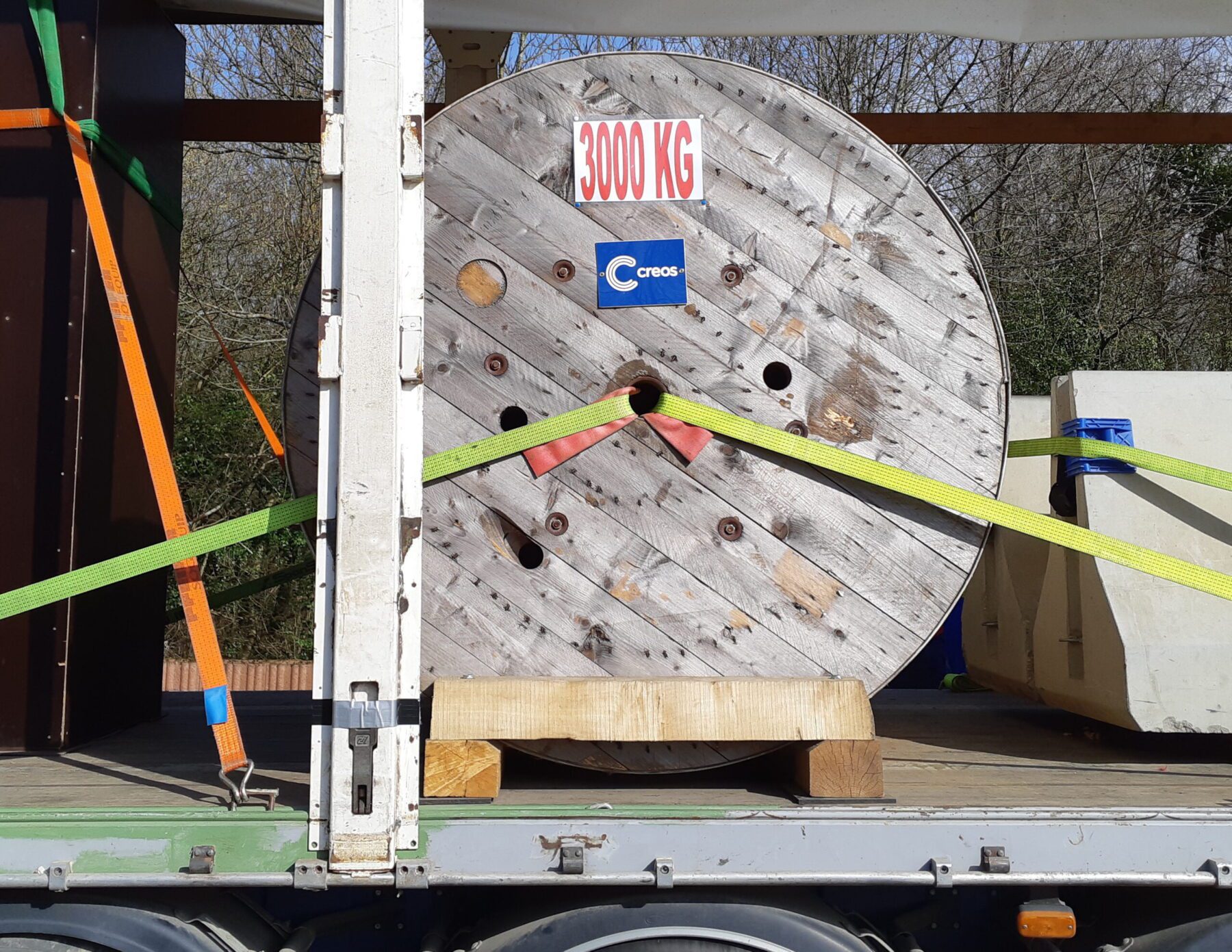Training in Le Havre and throughout France
Master regulations to protect your interests and guarantee safe transport.
Our training courses on load securing and loading of transport equipment are available on an inter- and intra-company basis.


Securing loads on road vehicles
The regulations governing the securing of loads in road transport have changed considerably, with the updating and addition of numerous standards, the modification of the standard contract (2017) and the appearance of a new directive.
Discover stevedoringtraining
CTU code - Practice for packing of "Cargo Transport Units"
The CTU code provides answers to essential questions about the safe loading and transportation of cargoes for container stuffing, and covers the recommendations to be taken into account for handling operations, checking equipment before and after loading/unloading, and advice on protecting the goods being transported.
Discover stevedoringtraining


In Le Havre and throughout France
Tailor-made training courses specialising in maritime and inland transport


Our quality approach at CTM Surey
CTM Survey is registered as a training organization under the following number: 28760576776.
This commitment has been rewarded with certification by BUREAU VERITAS (FR057363-1) to fully meet the regulatory requirements of the new QUALIOPI National Quality Standard (RNQ).
Tailor-made training courses for the maritime and land transport sectors
Our training courses are adapted to the needs of disabled people. If you have any special requests, please use the form at the bottom of the page to let us know so that we can consider your request.
As the issues are different for each structure, we also study tailor-made offers. Our in-company training courses can be customized in terms of duration (from awareness-raising to in-depth training) and content, to provide you with an offer that suits your specific needs.
Contact us for more information
We work mainly in Le Havre and the surrounding area, Brittany and Northern France.
Contact Us
+33 (0)6 24 08 04 90
Our location
6 Allée de Seine 76430 Saint-Romain de Colbosc
Write to us
y.lebreton@ctm-survey.net
How do our training courses work?
We make it easy for you to prepare for and carry out your training, as well as provide post-training follow-up. Here’s a brief description of the three stages of your training: before, during and after.
Before your training
Immediately after registration, you will receive a registration confirmation. A few weeks before your course, you will receive a training invitation with all the information you need to ensure that your course runs smoothly:
- the course title
- the dates
- the address
In certain cases where training is organized on an in-company basis, the invitation may be issued by the beneficiary company.
The day of your training
- Presential
On the day of training, you will be welcomed by our staff or by the trainer. Once you've settled into the training room, you'll be given an attendance sheet to sign. You'll also receive the training materials you need.
For inter-company training courses: Coffee, tea and mignardises are offered in the morning and during breaks. Lunch is included for participants and trainer.
- Distanciel.
Our training offer enables you to follow our synchronous distance learning course from your own workstation. You will receive an e-mail with a connection link 24 hours before the start of the course, along with the files you need to follow the session. Information on technical resources (applications, etc.) will be included in the e-mail.
We recommend that you log in at least 10 minutes before the start of the course, to avoid any loss of time in the event of access problems. Your trainer will be on hand to help you with any connection problems.
Your training course
Training courses generally start at 8:30 am. The trainer introduces himself, then goes round the table to get to know each participant, so as to adapt the organization of the training schedule (breaks, lunch) and the planned teaching sequences to the needs identified.
A wide variety of training tools are available, including visuals and presentations, data sheets, exercises, alternating applications, feedback and presentations.
Practical part (field)
In the case of in-company training, we provide part of the training in the field, with concrete, practical exercises. Arrangements for the provision of equipment and/or loading and stowage sequences are discussed in advance with the people in charge at the company.
Evaluation
Assessment is carried out during and at the end of the course. It takes the form of a written questionnaire (open-ended questions and MCQs).
After your training
- Trainees receive a training certificate after validation of their skills.
- Assessment of training quality by trainees in the form of a questionnaire.
- Depending on the offer, a complementary exchange (telephone / videoconference) can be organized to answer any questions trainees may have about applying the knowledge acquired.
The trainer remains contactable: participants can contact the trainer by phone or e-mail, and he or she will follow up with them within a month.

